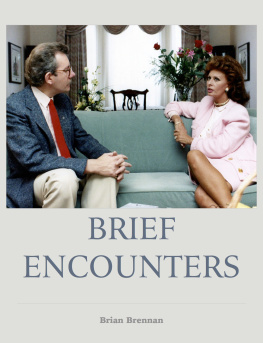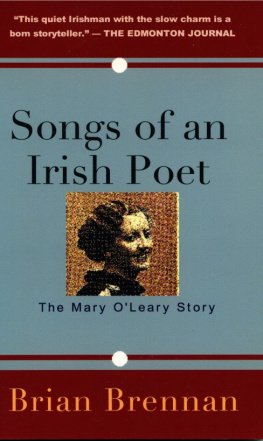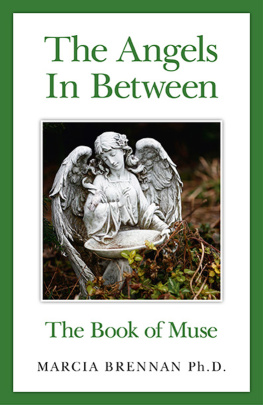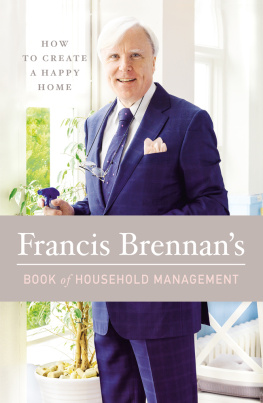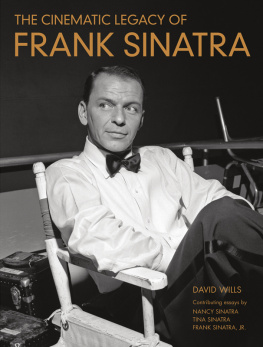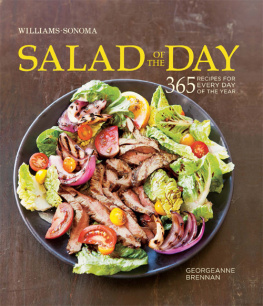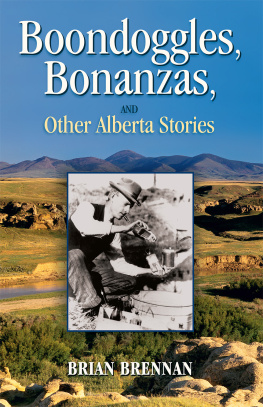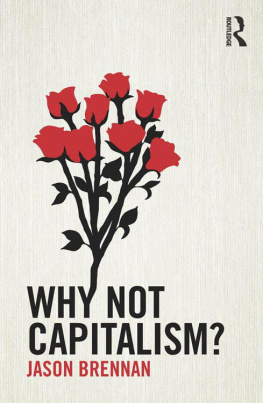
Introduction
This book had its genesis in a conversation I had with a writer friend bemoaning the fact that a Russian website was flogging pirated copies of our books without compensation to us. I mentioned in passing that Tennessee Williams once told me he had been similarly victimized. The Russians ripped him off to the tune of thousands of dollars in unpaid royalties on plays they had translated and staged without his permission.
You talked to Tennessee Williams? said my friend, surprised.
Yes, I hadnt really thought about it before, but indeed I got lucky. A week before I interviewed Williams, for a column that ran in the Southam (now, Postmedia) newspapers across Canada, he had left another reporter in the lurch saying, I havent been paid to pass the time with people who insult me. I dont know what this other reporter did to get Williamss goat, but when I caught up with him in Vancouver where he was readying his new adaptation of a Chekhov play for its premiere production the playwright was in better humour and ready to answer any questions about his life and work.
I did the Williams interview in 1981 and, as I hunted through my archives to find that story, I came across dozens of my other newspaper stories from the 1973-88 period that collectively, I thought, would make for an interesting book if expanded and updated. These were interviews I did with the likes of Kenny Rogers, Richard Harris, Sophia Loren, Leon Uris, Bob Newhart, Cleo Laine and other artists who had been sent on the road to promote new books, record albums or upcoming performances. In other instances, they came to town to make movies or in Sophia Loren's case to promote someone else's goods and services.
I was working then as a full-time general arts and entertainment writer based at the Calgary Herald , and it was easy for me to establish a rapport with these visiting artists because I had worked in the theatre as an actor and also had made my living as a barroom piano player. Additionally, I had the advantage of being a writer for a Canadian as opposed to British or American news organization. Artists who had been victimized by tabloids digging up dirt on their sex lives and drug habits seemed to feel on safer ground when talking to a Canadian reporter. They didnt think I was out to get them. In fact, to my surprise, they often dropped their guard and revealed little-known facts about their lives and careers when talking to me.
Crooner Al Martino, for example, told me he became a social pariah in Hollywood when the producers of the movie The Godfather signed him to play the troubled wedding singer Johnny Fontane a character loosely based on Frank Sinatra because the director, Francis Ford Coppola, wanted Sinatra protg Vic Damone to get the part. Coppola didnt think I could act, said Martino. He said I was just a singer.
Tammy Wynette was similarly candid when she told me she was finding it difficult to reconcile being a married mother of four with being constantly on the road. Recently married for the fourth time, she admitted that the marriage was already on the rocks. Its very hard to travel and live a normal life, she said wistfully. She divorced soon afterwards.
When I looked through those yellowed newspaper clippings, I thought it might be fun for you, the reader, to revisit them with me. I would give you some background, and perhaps tell you things that had to be left out of the original newspaper stories for lack of space or other reasons. For example, I can reveal here for the first time that when I talked to the movie actor Glenn Ford, it was after I had watched him doing take after take for a short one-minute scene in the first Superman movie. It took him that long because he simply couldnt remember the line.
Most of these stories did not come from in-depth interviews. The sessions necessarily had to be truncated because the press agents had other reporters lined up to ensure maximum media coverage. My interviews, therefore, never lasted for more than 15 or 20 minutes. Yet even though they were short and generally self-promotional in tone, they sometimes yielded nuggets. Richard Harris, for example, was at first more interested in talking to me about how much he missed boozing while on the wagon than how much he enjoyed starring as King Arthur in Camelot . And Kenny Rogers gave me an impromptu a cappella preview of his soon-to-be hit recording of Lucille when I asked him where he planned to go next with his music after experimenting with rockabilly, jazz, folk, country and psychedelic rock.
Occasionally, interviews fell into my lap I when I least expected them. I never thought, for example, I would ever get to do an interview with Chuck Berry because the reclusive rock star was said to be miffed at all the bad press he had received over his troubles with the law during the 1960s. Yet he agreed to talk to me before going on stage for a nightclub performance in Calgary. Why? Because now Im finally ready to talk, he said, without elaborating. The legendary fan dancer Sally Rand, was also reluctant to talk to reporters, especially those who came with cameras and lights to film her show. But she happily chatted with this reporter who came with just notebook and pen, until I asked her why she was still stripping at age 71. What would I retire to? she said dismissively.
Later events reminded me of some of these long-ago interviews. When B.B. King played the blues for President Obama at the White House in 2012, I recalled that he once told me he thought the blues was dying. When Randy Bachman reinvented himself as a CBC Radio host, I recalled asking him why he had seemingly committed artistic suicide twice, first by walking away from the Guess Who and then by leaving Bachman-Turner Overdrive. When Johnny Depp played Tonto in the 2013 big-screen remake of The Lone Ranger (a flop, by all critical accounts), I recalled that I had talked to the original Tonto, Jay Silverheels, about the racism he encountered in Hollywood during the 1950s.
I did these interviews long before celebrities connected directly with their fans via websites or social media; when it was still possible for a lucky reporter to learn something about an interviewee that hadnt been in the news before. So in one respect you might see this book as a nostalgic exercise in time-capsule journalism, evoking a particular time and place before the era of Twitter and Facebook. But I think its also important to let you know what happened to these people after I talked to them. When I tell you, for example, about the problems Mordecai Richler encountered when he first had his book The Apprenticeship of Duddy Kravitz adapted as a stage musical, I think you might also be interested in knowing the extraordinary lengths to which the producer went afterwards in an attempt to take the show to Broadway.
Why does the song Amazing Grace still occupy a very special place in the repertoire of singer Judy Collins? Why did Robertson Davies abandon what appeared to be a successful career as a playwright in Canada to start writing novels? Why did Sophia Loren go back to Italy to serve a jail term for tax evasion? Why did Tom Lehrer totally disappear from the scene after establishing himself as one of Americas cleverest and wittiest satirical songwriters? Why did Michael Nesmith quit The Monkees to start making music videos? Why did Shari Lewis start conducting symphony orchestras after she had endeared herself to kids all over the world with a comedy ventriloquism routine involving a cute sock puppet named Lamb Chop? Why did Chubby Checker go through 20 pairs of platform boots a year to keep his audiences twisting the night away? Those are some of the questions Ive tried to answer in this book while simultaneously looking backward and forward.
Next page
